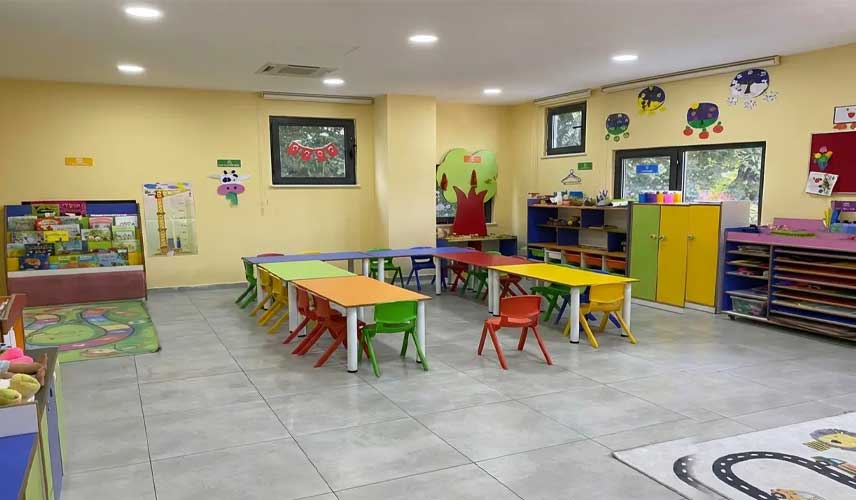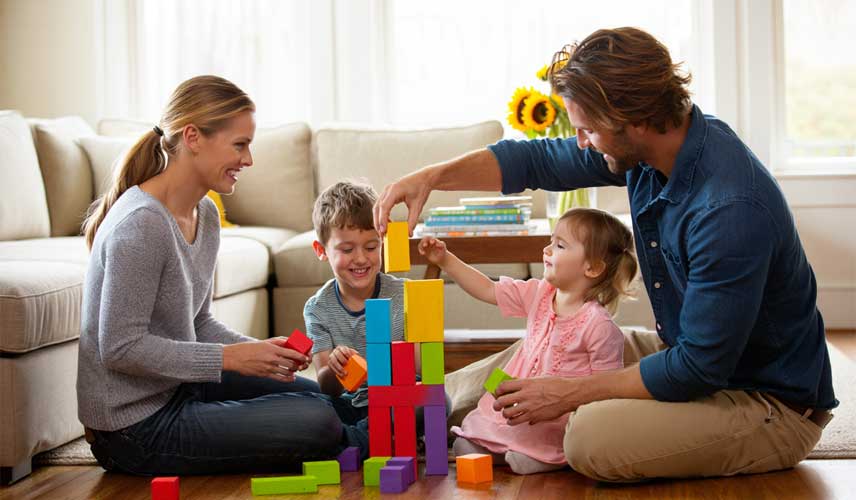
10 Ways to Communicate Well with Children

If you want to raise a child who has self-respect and confidence, you should research ways to communicate well with your child and put what you learn into practice. You can be sure that your efforts in this area will have many positive contributions to your child's life. Communicating with children according to their age is very important for their academic, social, and emotional development. Many parents actually know this, but the key is to apply it. If you can communicate correctly with your child, you will gain accurate insights into their feelings, thoughts, dreams, fears, and problems. A child who feels valued and important will behave the same way towards their own child and others. They will communicate more easily with people and better understand their own and others' emotions.
Ways to Communicate Effectively with Your Child
1. Be Very Clear with Your Two-Year-Old
Children around the age of two generally tend to respond to many things with "No!" and by crying. Children at this age are not very open to cooperation and cannot understand long, detailed sentences. Therefore, express what you want to say in 1-2 short and easily understandable sentences.
2. Listen to Your Child, Regardless of Their Age, and Value Their Excitement
The things that children and adults care about and are interested in are not the same; therefore, what your child tells you may sometimes seem unnecessary or insignificant. However, even in such situations, you should listen to them by making eye contact, without interrupting, and avoiding a mocking attitude. Something that seems very simple to you may be quite important to them, always keep this in mind. When listening to them, if possible, sit down or squat to equalize your heights.
Have you ever tried to look at life through children's eyes? This is a very important point. When your child is excited for any reason and wants to share their feelings with you, make sure to listen to them. If possible, put aside what you are doing. Their excitement will decrease shortly, they have a need to express their feelings at that moment, allow them to do so.
Children can sense when you are pretending to listen. If you are not available at that moment, instead of doing that, tell them to wait and that you can listen to them a little later.
3. Avoid Asking Very General Questions
This is a situation that parents of elementary school-aged children often encounter; you ask your child what they did at school that day, and they do not provide a satisfactory answer. The reason for this is sometimes the question itself is faulty. Children understand and respond better to specific questions until they are around 11-12 years old. Therefore, instead of asking what they did at school, ask what they ate, if there was something that upset or pleased them, or what they learned about a specific topic. The simpler and clearer your questions are, the easier it will be to get answers.
4. Pay Attention to Your Warning Language!
When it comes to communication with children, the expression "I think you are overdoing this, and that makes me sad" is more effective than "You do this too much, it's wrong, I won't allow it." If you express your warnings about things you find wrong by saying "I" and indicating what feelings it evokes in you, rather than saying "You" and giving orders, your communication will not be damaged.
Your way of warning your child should not be constantly giving orders, blaming, or judging. This is a one-sided conversation; this is not communication. If you want to achieve results, you must add emotion and respect to your criticism and warnings.
5. Your Tone of Voice and Attitude Should Not Be Like Talking to a Baby
The infancy period is generally considered to be between 0-3 years. Especially when talking to your child who is over 3 years old, you should adjust your tone of voice and attitude as if you were talking to an adult. This makes the child feel that they are taken seriously and regarded as a person.
6. Give Responsibilities to Your Three-Year-Old Within the Family
Healthy communication should start within the family. From the moment your baby is born, you communicate with them in various ways, even though they cannot speak yet, right? You must do this, and when they reach the age of 3, you should give them age-appropriate responsibilities within the family. You should make them feel that they are an individual.
7. Do Not Brush Off Their Questions
Children can be very curious and sometimes ask so many questions that it tests one's patience. In this situation, be patient and answer your child's question. Remember that many things that seem ordinary to you are interesting and intriguing to them, and they are trying to understand their environment and the world through questions.
8. Your Communication with Others Affects Your Child
Children's clear minds record everything. Therefore, your child takes examples not only from your words and behaviors directed at them but also from your communication with others.
9. Hug Them, Make Them Feel Loved
Body language is important in communication; we can convey our feelings without using words. Show your love through your actions to support your child's physical and mental development, to give them confidence, and to help them feel peaceful and happy.
10. Take Time for Yourself
Raising children and communicating well with children requires patience. If you take time for yourself to do things you enjoy, you will feel better and more enjoyable, which will make it easier for you to act patiently.
Child Development and Education Other Content in the Category

Child Development and Education
Ways to Develop Fine and Gross Motor Skills in Children

Child Development and Education
First Day at Kindergarten: 12 Tips to Ease the Transition

Child Development and Education
6 Tips for Success

Child Development and Education
8 Reasons for Attention Difficulties in Children

Child Development and Education
Problems Related to Homework and Solutions

Child Development and Education
15 Life Skills Your Teen Should Acquire

Child Development and Education
35 Positive Messages Your Child Needs to Hear

Child Development and Education
10 Characteristics of Good Enough Parents

Child Development and Education
Child Development: The First 5 Years

Child Development and Education
7 Things You Need to Do to Raise a Well-Rounded Child

Child Development and Education
14 Effective Methods to Improve Children's School Success

Child Development and Education
8 Tips for Positive Parenting

Child Development and Education
10 Ways to Communicate Well with Children

Child Development and Education
How Does Changing Schools Affect Children?

Child Development and Education
